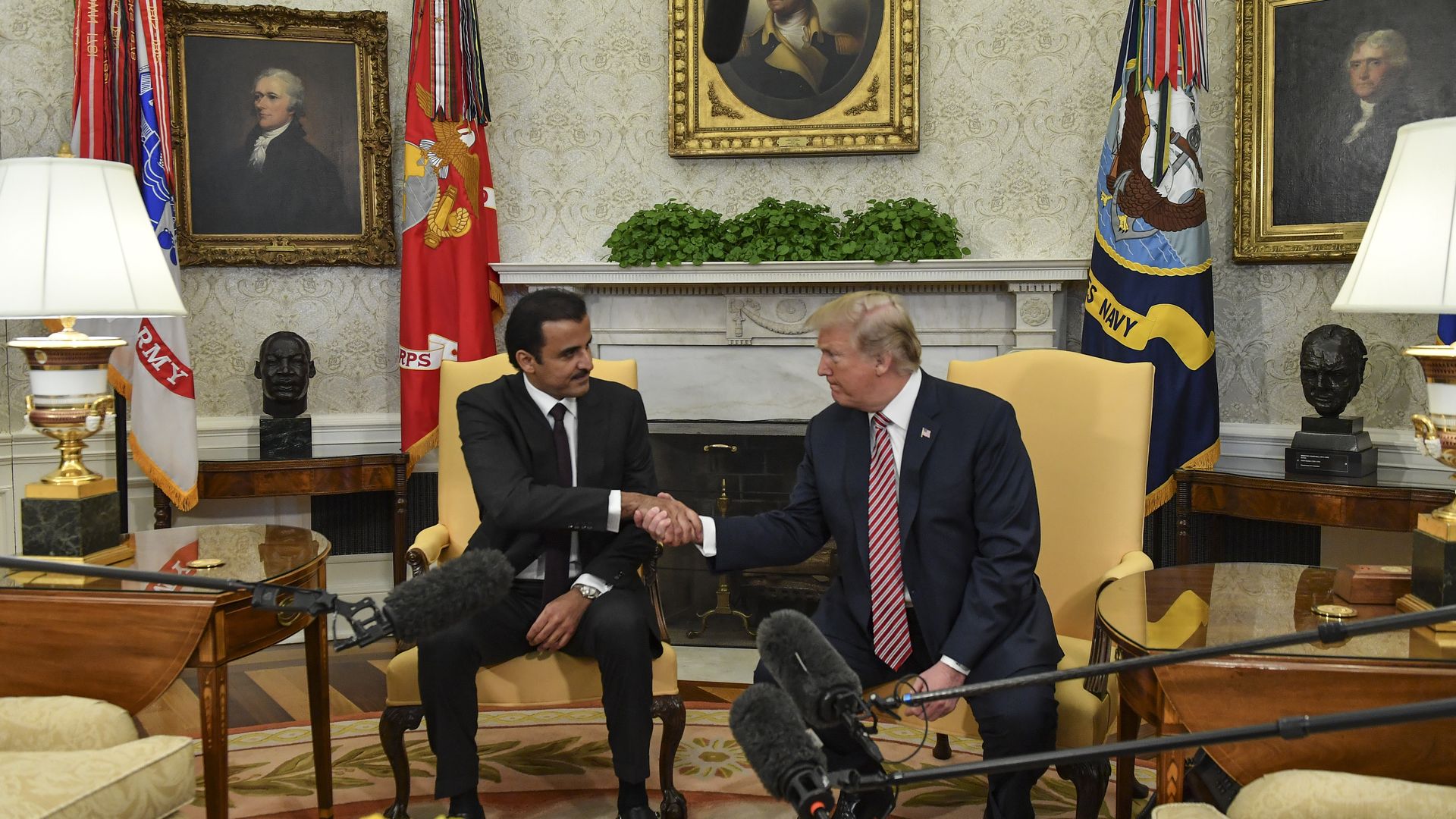Apr 11, 2018 - World
Relations with Qatar key to constraining Iran
Add Axios as your preferred source to
see more of our stories on Google.

President Donald Trump shakes hands with Emir of Qatar, Sheikh Tamim Bin Hamad al-Thani. Photo: Ricky Carioti/The Washington Post via Getty Images
